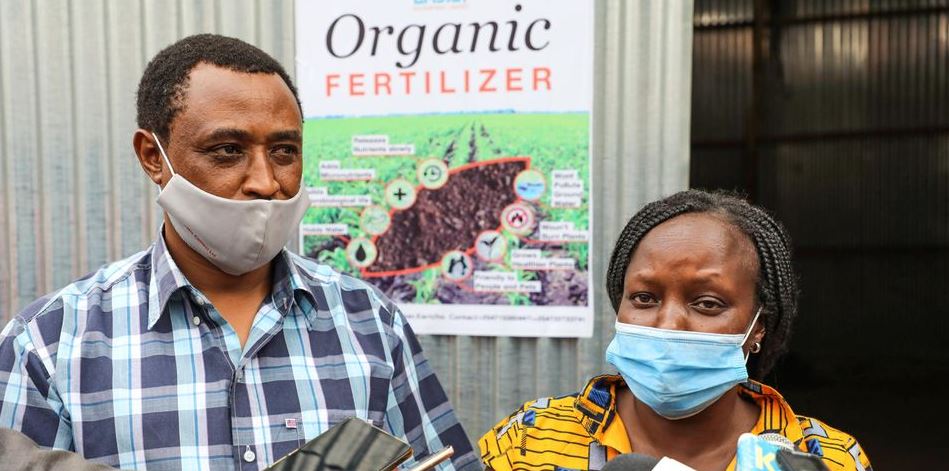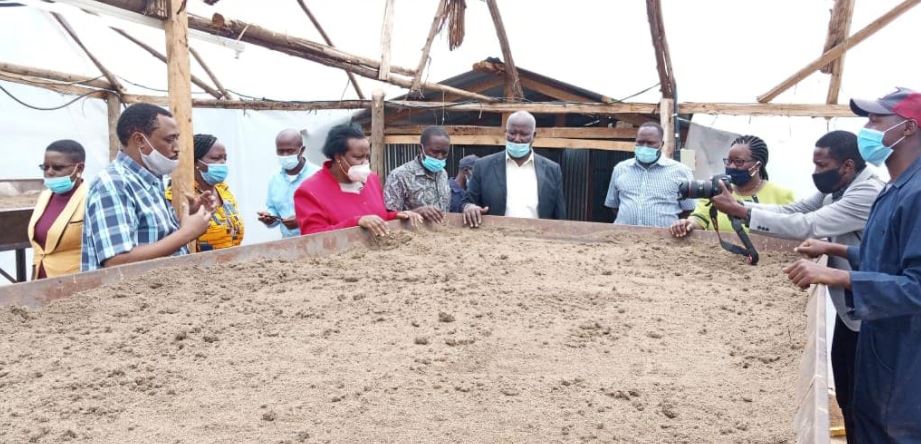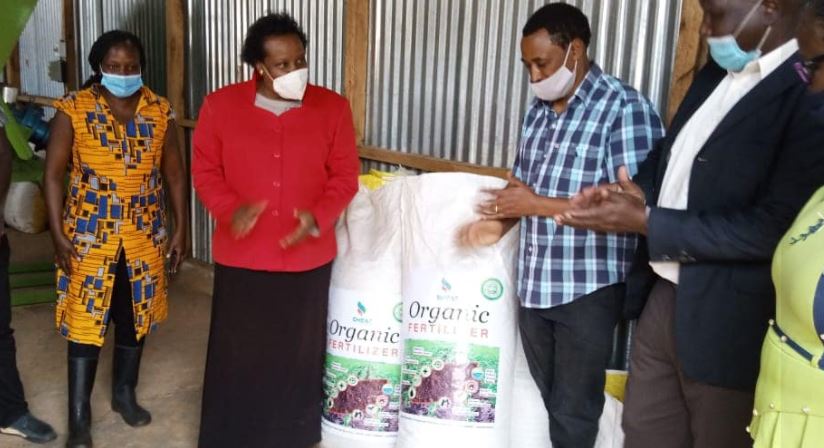
Besides selling eggs, they process the chicken manure into organic fertilizer for sale to farmers.
They spoke to Nation about their thriving agribusiness.
How did you start?
Too and Emily: Ours has been a long journey but we did not start with poultry. We bought our two acres 12 years ago, which had tea bushes planted 58 years earlier.
We had banked on tea but disappointment started to set in because of low earnings. Our last earning from the crop was Sh1,700.
This was not worth it, so we uprooted the bushes and switched to horticultural farming before later venturing into poultry.
To start out, we registered Emsat Enterprise in 2018, which is our trading name, and then visited established farms for lessons.
Later, we constructed a poultry house and a brooder and purchased battery cages for the 1,000 layers that we started with.
We also set up a small bio-digester for the production of gas to light the poultry houses, the main house, and for our cooking. The entire investment cost us Sh3.4 million.
Yours is a huge enterprise, how many eggs do you collect?
At least 1,700 eggs are collected from 2,000 layers daily and sold to supermarkets, hotels, and retail shops in Kericho town, Kabianga, Sondu, Kapsoit, and Muhoroni trading centres.
We sell a tray of 30 eggs for between Sh280 and Sh320 depending on market forces. Another 2,000 birds are at growers stage and are expected to start laying soon.
We feed the birds commercial feeds only to maintain quality. They consume at least thirty 70kg bags weekly. The broilers go for up to Sh400 each.

Yes, we saw a business opportunity out of the waste after its management became a problem.
To dispose of the waste, we would give it out to neighbours for free but a time reached when they did not need it.
It piled up on our farm, leading to one big mess that generated maggots and a foul smell that made our neighbours complain.
We did research on waste management and learnt how companies in India were producing organic manure from it.
Later, we invested Sh2 million in manure-processing from China. The machines we have installed on our farm include a granulator, a crusher, and a dryer.
They have the capacity to produce 600kg of manure daily but currently, the production level stands at 200kg because of low volumes of droppings.
We are planning to raise the number of birds to increase the production of manure, which takes a month in fermentation chambers before being processed into an organic product, which is packed in 20kg bags and sold at Sh1,000.
The product targets small-scale farmers. We are awaiting certification from the Kenya Bureau of Standards.
How do you manage to run the firm successfully while you are away most of the time?
We have installed CCTV cameras to enhance security and monitor the daily undertakings. The farm manager also offers us daily progress reports.
We have 10 workers, who we support with the income we get from the crops and also provide for their other needs, apart from paying their salaries.
For now, our focus is not on profits. Our long-term plan is to expand the value chain, be a leader in egg production, the supply of broiler chicken, and organic manure.
What challenges do you encounter in the agribusiness?
Paul Yegon, the farm manager: Diseases are a challenge. There is a time we lost 300 chickens to New Castle Disease, whose symptoms are sneezing, coughing, drooping of wings, nasal discharge, and eventually paralysis.
We try to control the disease through strict adherence to vaccination schedules.
What are the benefits of chicken manure?
Odoyo Bitarr, Kenya Climate-Smart Agriculture Project coordinator, Kericho Country: Manure from chicken is rich in nitrogen, phosphorous, and potassium and should be decomposed or processed before it is applied on crops.
It increases soil water-holding capacity and helps control and break down nutrients.
source http://nairobiwire.com/2020/11/hustle-chicken-farming-couple-turns-manure-into-money.html

No comments:
Post a Comment